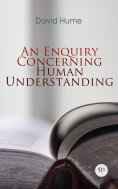A Treatise of Human Nature
Über das eBook
David Hume's "A Treatise of Human Nature," originally published in 1739, stands as a seminal work in the fields of philosophy and psychology. Crafted in a systematic and empirical literary style, Hume seeks to explore the foundations of human understanding, arguing that reason is often the slave of the passions. The text is structured around a rigorous examination of human psychology, encompassing topics such as perception, emotion, and morality, thereby situating itself within the broader context of Enlightenment thought. Hume's inquiry into the nature of knowledge and belief questions the conventional wisdom of his time, marking his work as a precursor to modern philosophical thought. David Hume (1711-1776) was a Scottish philosopher and historian, known for his empirical approach to human inquiry. His interest in human nature was deeply influenced by his own experiences of skepticism, coupled with the intellectual milieu of the Scottish Enlightenment. Hume's dedication to reason, ethics, and human behavior shaped his perspective, leading him to challenge dogmatic views and propose a new understanding of human actions and social interactions. "A Treatise of Human Nature" is an essential read for anyone interested in the evolution of philosophical thought and the dynamics of human behavior. Hume's profound insights and eloquent prose make the work not only crucial for students of philosophy but also accessible to general readers seeking to understand the complexities of human nature.
Über den Autor
David Hume (1711—1776) stands as one of the most influential figures in Western philosophy, history, and economics. His seminal work, 'A Treatise of Human Nature' (1738-40), lays the foundation of his philosophical inquiry into the nature of human understanding and morality. In this sweeping work, Hume ambitively set out to formulate an empirical psychology that would account for the operations of human nature, arguing against the rationalist perspectives of the time. His approach heavily emphasized empiricism and skepticism, challenging the metaphysical assumptions of his contemporaries.
Hume advocated the idea that our knowledge arises from our experiences, which in turn influence our passions and actions. His treatise, however, initially received a lackluster reception, prompting him to revise his ideas in later works such as 'An Enquiry Concerning Human Understanding' and 'An Enquiry Concerning the Principles of Morals'. It was not until the 20th century that the significance of Hume's contributions to philosophy and economics were fully recognized, influencing diverse fields and thinkers from logical positivists to cognitive scientists. Hume's literary style combines rigorous philosophical analysis with an accessible and polite prose, which has made his writings enduringly popular and historically significant.
Produkt Details
Verlag: DigiCat
Genre: Sprache - Englisch
Sprache: English
Umfang: 577 Seiten
Größe: 755,9 KB
ISBN: 8596547045588
Veröffentlichung: 2. Juni 2022



























